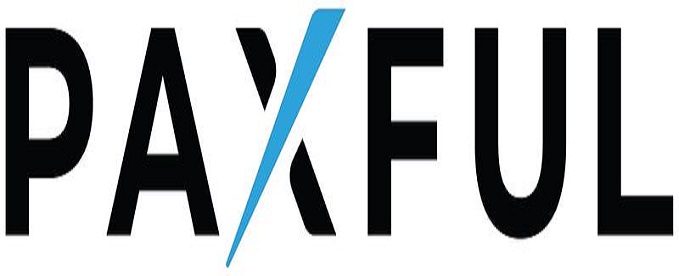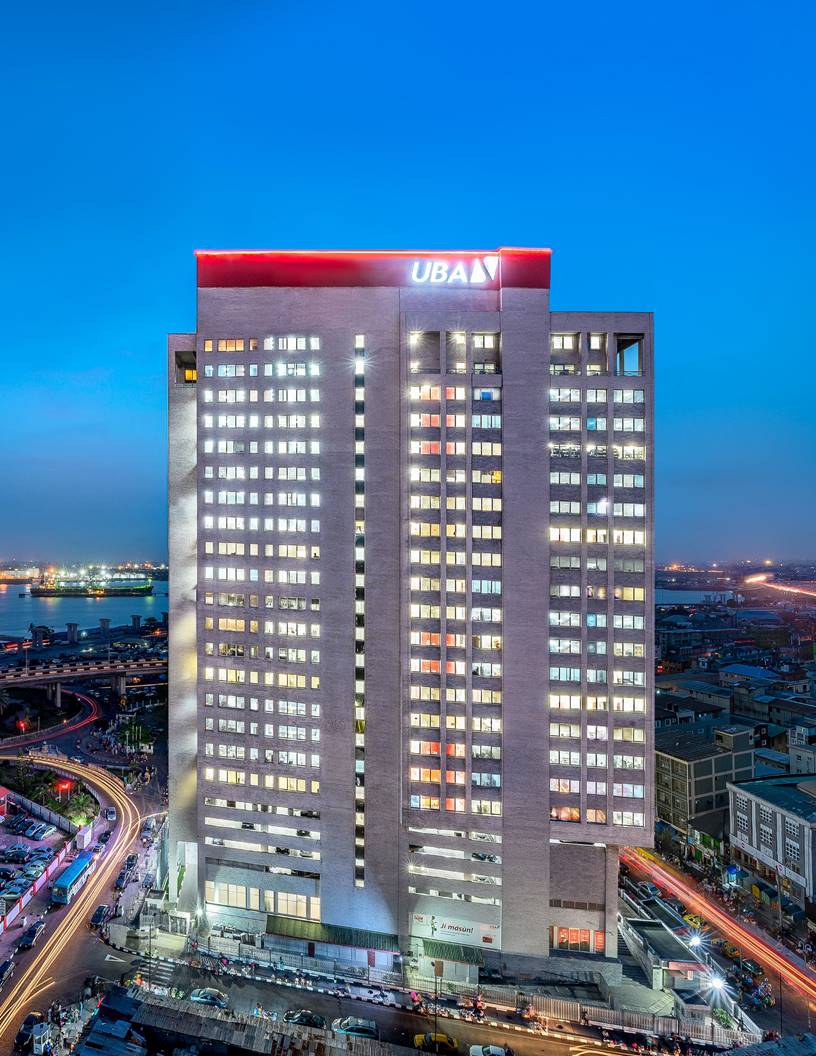E-Financial
Paxful Offers Tips on How Users Can Safely Trade Cryptocurrency

To mark this year’s National Consumer Protection Week, Paxful is offering a few tips on how users can buy and trade cryptocurrency safely.

Cryptocurrencies are growing in popularity; more and more people are now interested in using bitcoin or another digital currency to trade, invest or use in their daily life.
Only recently, Elon Musk invested a significant sum of $1.5 billion in cryptocurrency through his company, Tesla Inc. This move prompted even more interest as bitcoin prices surged.
As with any other financial transaction, it is important to be aware that there are some criminals out there ready to scam unsuspecting people.
So, if you’re new to cryptocurrencies, how do you stay safe and keep your funds protected? Here are a few tips:
Select a trusted Platform
There are several exchange platforms available to transact on, however, some offer more security than the others. In other words, before adopting a crypto exchange platform to transact on, you need to know about its security measures as well as its fees and pricing, coin variety etc.
For instance, on Paxful, a global peer-to-peer finance platform, your account has two-factor authentication enabled.
Paxful also uses ID and address verification for customers and monitors transactions in real time, which means it can identify and stop suspicious activity quickly.
Know who you’re buying from: On some exchanges, you can check out a seller’s record and the feedback they’ve had from other users. If someone has never made a payment using online wallets before, think about limiting the trade amount as a safety check.
Some platforms act as the escrow on the transaction which means that it holds the bitcoin until both sides have completed what they need to do. This helps ensure the transaction is safe.
On Paxful for example, the seller cannot cancel the trade; it can only be canceled by the buyer or auto canceled by the system if the payment is not made by the buyer within the payment window.
Explore Storage Options for your Digital Currency
When you buy cryptocurrency, you need to store it in a digital wallet. This can be hardware-based or web-based. Exchanges often give you your own wallet but sometimes these are vulnerable to hackers. Check out what security measures are in place before deciding if that’s the place you want to store your funds. Paxful uses BitGo as a wallet service provider, which is one of the most secure and high-tech services on the market.If you are in crypto for the long haul, think about getting your own digital wallet.
Sponsored by Paxful
About Paxful
Paxfulis a peer-to-peer finance platform for people to make payments, transactions, and send money by buying and selling cryptocurrencies as a means of exchange.
Founded in 2015 by Ray Youssef and Artur Schaback, Paxful’s mission is to help everyone have equal access to finance no matter who or where they are.
Over 5 million people use Paxful to buy and sell Bitcoin (BTC) and Tether (USDT) with almost 400 different payment methods.
Ray Youssef, co-founder, and CEO of Paxful, set up the Built with Bitcoin Foundation to help people have access to education and water. To date, the foundation has built four schools (two in Rwanda, one in Kenya, and one in Nigeria); has provided health and food supplies in South Africa, Kenya, and Nigeria and education supplies in India to people affected by the COVID-19 pandemic. The Built with Bitcoin Foundation is funded by Paxful and in part by donations from Paxful users.
E-Financial
UBA Announces Successful Completion of System Upgrade

United Bank for Africa (UBA) has successfully completed its much-anticipated system upgrade, restoring all banking services to normalcy.

In a message to customers, UBA reassured customers that they could now log in to the mobile app and enjoy a smoother, more efficient banking experience.
The bank acknowledged any inconvenience caused by the process and reaffirmed its commitment to providing top-tier financial services.
“We are pleased to inform you that our mobile app upgrade has been completed, and all services have been fully restored. You can now log in and enjoy a smoother banking experience and improved services,” UBA announced.
While the upgrade promises enhanced functionality and reliability, UBA urged customers experiencing any lingering issues to reach out to its 24-hour Customer Fulfilment Centre via 02012808822 or email [email protected] for prompt assistance.
With the completion of the process, UBA reassured its customers of its dedication to innovation and excellence in banking.
E-Financial
SERAP Gives CBN 48-Hour Ultimatum to Withdraw ATM Fee Hike

Socio-Economic Rights and Accountability Project (SERAP) has called on the Central Bank of Nigeria (CBN) to immediately revoke its recent increase in Automated Teller Machine (ATM) transaction fees, describing the move as “Patently unlawful, unfair, unreasonable, and unjust.”

In an open letter addressed to Olayemi Cardoso, governor, CBN, and dated February 15, 2025, SERAP warned that the fee hike would worsen economic hardship for millions of Nigerians, particularly those at the lower end of the financial spectrum.
The rights group gave the apex bank a 48-hour deadline to reverse the policy or face legal action.
The CBN’s new directive mandated that ATM withdrawals at off-site locations, such as shopping malls, airports, and standalone cash points, will attract an N100 charge per N20,000 withdrawal.
Additionally, a surcharge of up to N500 may apply for transactions conducted at certain locations. The new fees are set to take effect from March 1, 2025.
In its letter, signed by Kolawole Oluwadare, deputy director, SRERAP criticized the policy, arguing that it would disproportionately affect struggling Nigerians while benefiting commercial banks.
“The manifestly unfair increase in ATM transaction fees will hit hardest those at the bottom of the economy and exacerbate the growing poverty in the country,” SERAP stated.
The organization further argued that financial institutions should bear the cost of banking operations, rather than shifting the burden onto customers, particularly those with limited financial means.
SERAP accused the CBN of prioritizing the interests of banks over the welfare of ordinary Nigerians, many of whom already struggle with the high cost of living.
The group pointed out that banks continue to report record-breaking profits while imposing excessive charges on customers.
“CBN policies should not be skewed against poor Nigerians and heavily in favour of banks that continue to declare trillions of naira in profits, mostly at the expense of their customers.
“The increase in ATM transaction fees will inflict misery on Nigerians and contribute to human rights abuses,” the letter read.
SERAP also noted that the policy contradicts President Bola Tinubu’s commitment to tackling poverty in Nigeria.
The rights group argued that the CBN’s action violates multiple legal provisions, including the Nigerian Constitution, the CBN Act, and the Federal Competition and Consumer Protection Act.
SERAP highlighted specific sections of these laws that prohibit unfair business practices and protect consumers from exploitative charges.
According to SERAP, the increase in ATM fees discriminates against low-income Nigerians who may struggle to afford the higher fees, creates a two-tiered financial system that favours the wealthy, contradicts the CBN’s stated mission to promote national economic well-being, and violates international human rights obligations under the United Nations Guiding Principles on Business and Human Rights,
“The CBN has responsibilities under the UNGPs to take effective steps to avoid or mitigate potential human rights harm and to consider ending any charges or transaction fees where severe negative human rights consequences cannot be avoided or mitigated,” SERAP asserted.
“We would be grateful if the recommended measures are taken within 48 hours of the receipt and/or publication of this letter.
“If we have not heard from you by then, SERAP shall take all appropriate legal actions to compel you and the CBN to comply with our request in the public interest,” the letter warned.
E-Financial
FG Seeks Fresh $300m Loan from World Bank for Health Security

Federal government has engaged the World Bank for a fresh $300m loan to strengthen Nigeria’s health security infrastructure.

Information obtained from the World Bank showed that the loan, which is under consideration, will be implemented by the Nigeria Centre for Disease Control (NCDC) with the Federal Ministry of Finance acting as borrower on behalf of the Federal Government.
According to information on the World Bank website, the loan project is expected to “increase regional collaboration and health system capacities to prevent, detect, and respond to health emergencies in the Federal Republic of Nigeria.”
The project is currently in the pipeline stage, with the disclosure date scheduled for February 6, 2025.
The World Bank board is expected to give its approval on July 30, 2025, following necessary assessments. The appraisal is set for April 14, 2025, and implementation will commence in the 2026 fiscal year.
According to a document on the concept of environmental and social review, the Nigeria Health Security Programme aligns with broader government efforts to enhance disease surveillance, diagnostic capabilities, emergency response, and laboratory networks across the 36 states and the Federal Capital Territory.
The programme’s primary objective is to enhance regional collaboration and strengthen Nigeria’s health systems to deal with emergencies. It falls within the World Bank’s investment in health, nutrition, and population sectors across Western and Central Africa.
According to the Environmental and Social Review Summary of the project, HeSP will expand molecular laboratory capacity, upgrade primary healthcare centres, establish emergency operation centres, and construct warehouses.
It will also deploy mobile laboratories and install water, sanitation, and hygiene facilities alongside solar energy systems to support health infrastructure improvements.
Although the total project cost is yet to be determined, the World Bank has committed $300m to the initiative. The funds aim to bolster Nigeria’s pandemic preparedness and improve response mechanisms for public health threats.
The initiative comes as Nigeria strengthens its public health infrastructure following lessons from previous outbreaks, including COVID-19.
If approved, the loan will support the NCDC in improving disease surveillance, diagnostics, emergency response, and laboratory services.
Nigeria has previously secured funding from international financial institutions to boost healthcare resilience, including financing for vaccine procurement, emergency medical services, and infrastructure development.
However, the project, categorised as a high-priority public health intervention, carries substantial environmental and social risks due to potential health, safety, and ecological concerns associated with infrastructure expansion.
Identified risks include increased medical waste, occupational hazards, and heightened energy and water demands.
Social risks range from potential grievances from stakeholders to concerns over land acquisition and implementing health interventions in conflict-prone areas.

 E-Financial2 days ago
E-Financial2 days agoSERAP Gives CBN 48-Hour Ultimatum to Withdraw ATM Fee Hike

 E-Financial2 days ago
E-Financial2 days agoFG Seeks Fresh $300m Loan from World Bank for Health Security

 General News2 days ago
General News2 days agoFG Drops Merger of NCAA, NAMA

 News2 days ago
News2 days agoBinance Chief Insists Some FG Officials, Reps Demand $150m Bribe

 Telecom22 hours ago
Telecom22 hours agoToriola, MTN Nigeria CEO again Defends Tariff Hikes amidst Backlash

 News2 days ago
News2 days agoinDrive Unveils Cashless Bank Transfer Feature in Nigeria

 E-Business22 hours ago
E-Business22 hours agoSouth Korea Joins List of Countries Banning DeepSeek over Security Concerns

 E-Financial2 days ago
E-Financial2 days agoCardinalStone Acquires Radix Pension Managers























